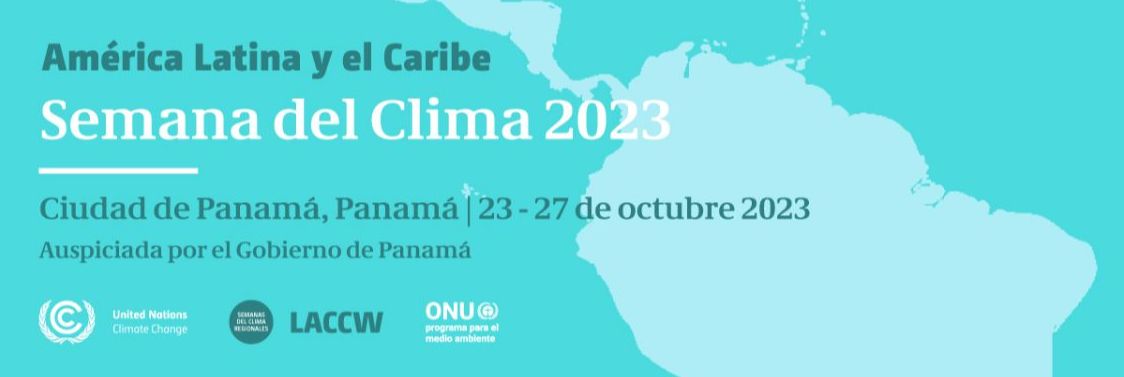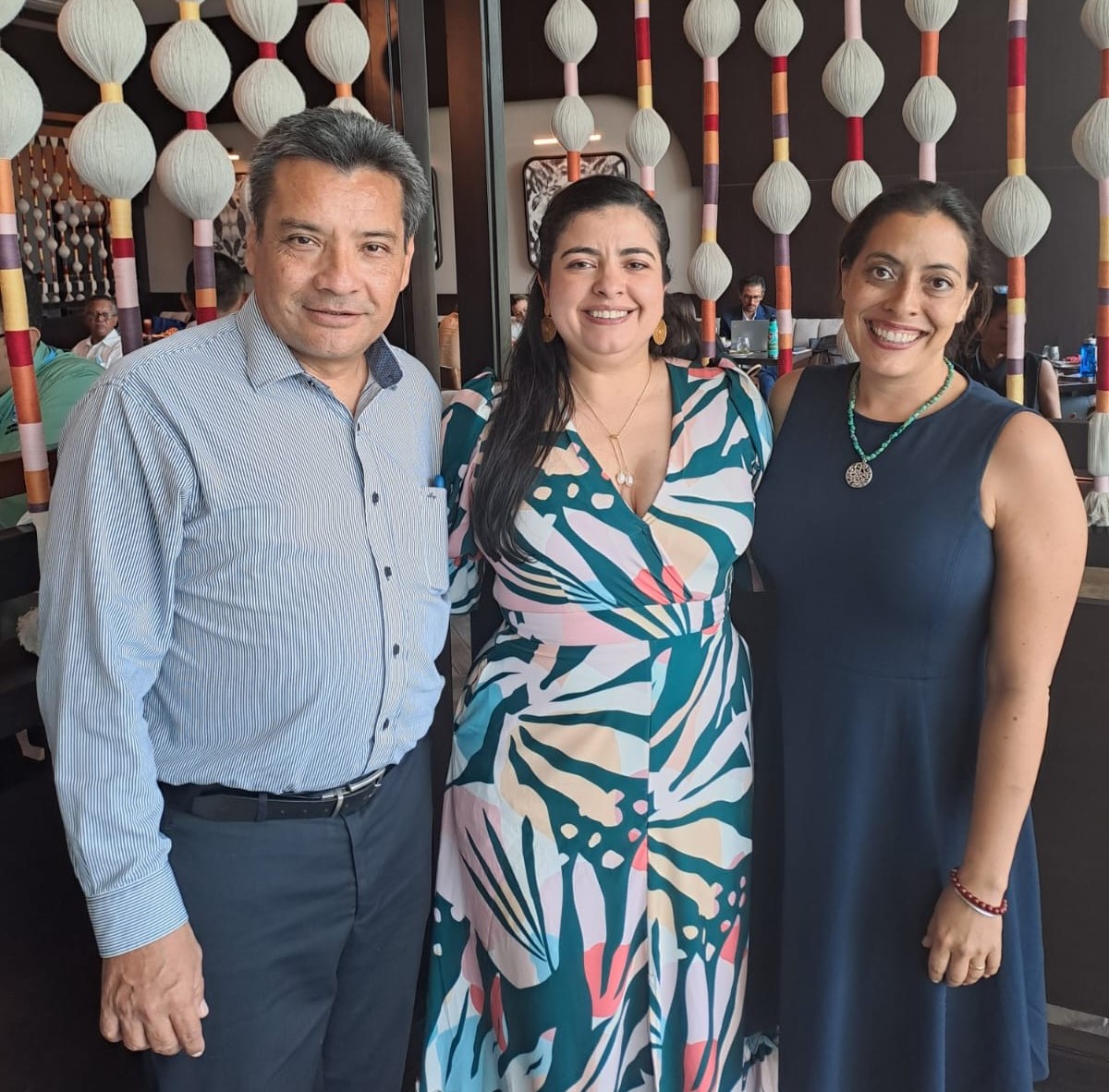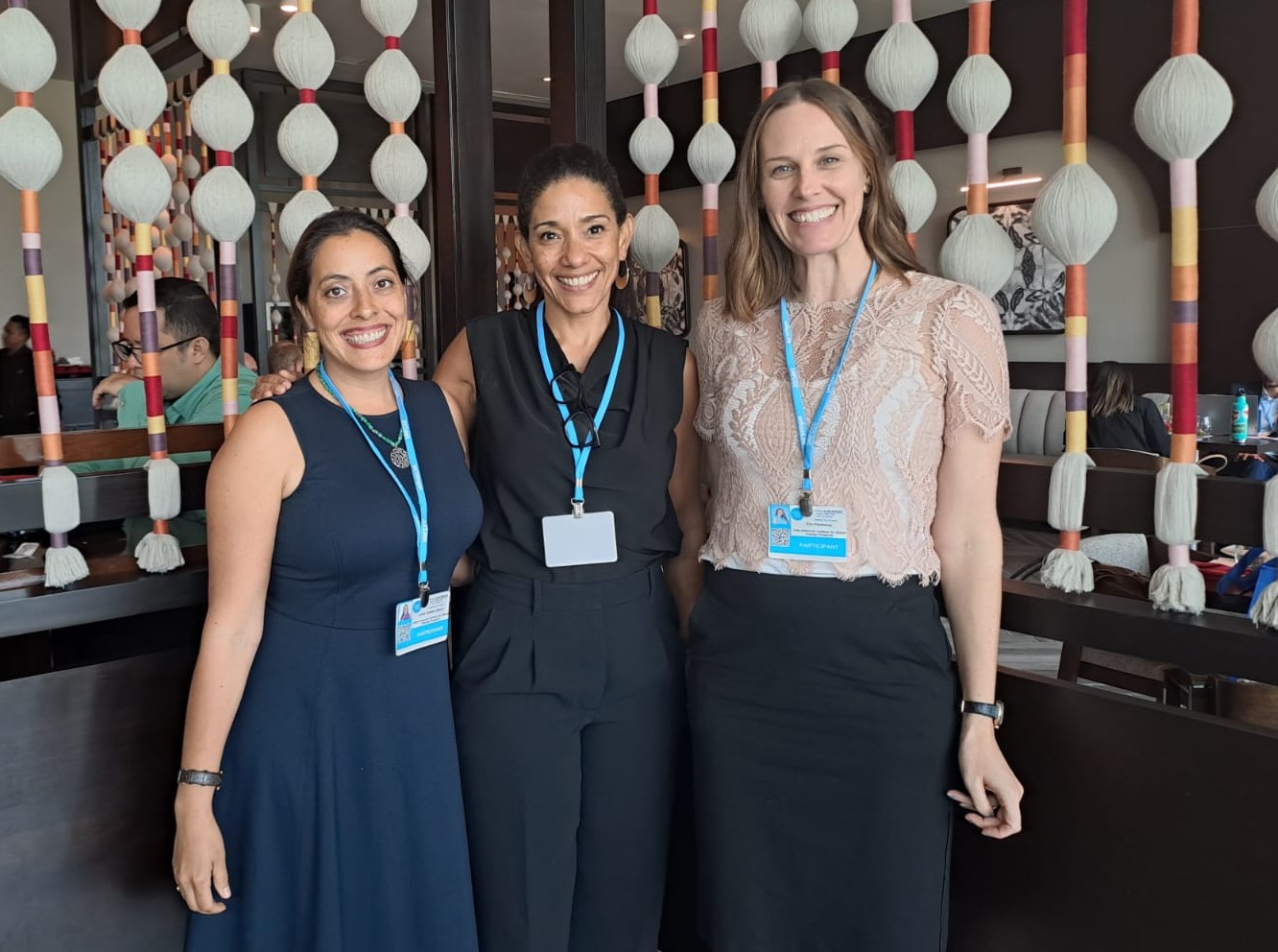Protecting the Environment and Society: The Importance of Meteorological and Hydrological Services in Latin America and the Caribbean

The Latin America and Caribbean Climate Week (LACCW 2023), organized by the UNFCCC (United Nations Framework Convention on Climate Change), took place from 23 October to 27, 2023, and was sponsored by the government of Panama. LACCW 2023, along with all Regional Climate Weeks, provides a platform for policymakers, professionals, businesses, and civil society to exchange climate solutions, discuss challenges, and highlight opportunities realized in different regions in preparation for COP28 in Dubai, United Arab Emirates.
 |
 |
|
Edwin Castellanos, Director of Science, IAI |
Anna Stewart Ibarra, Executive Director, IAI. |
During LACCW 2023, key themes discussed throughout the week included preparations for the first Global Stocktake, Climate Financing, Adaptation, and building climate resilience, as well as the need to place communities at the center of climate action. Data and information gaps were also addressed as central elements for Just Transitions towards energy efficiency and for attracting climate-friendly investments.
"Finances do not exist in a vacuum but have a purpose. The impact of climate change is indiscriminate and affects everyone, everywhere, in everything... To manage the climate crisis, we must manage the debt system of countries." - Mr. Hyginus 'Gene' Leon, President of the Caribbean Development Bank (CDB).
"It is important to work with stakeholders at the local level and maintain communication at all stages of the process. The top-down approach with governments promoting EWS must be complemented by a bottom-up approach to involve local stakeholders from the outset in the design of EWS." - Edwin Castellanos, Science Director, IAI
The symposium in which IAI (Inter-American Institute for Global Change Research) participated on Meteorological and Hydrological Services in Latin America and the Caribbean in the provision of meteorological, hydrological, and climatic services, as well as early warnings for environmental and societal protection, was jointly organized with the WMO (World Meteorological Organization), UNEP (United Nations Environment Programme), and UNDRR (United Nations Office for Disaster Risk Reduction). The main objective was to highlight the crucial role of NMHS (National Meteorological and Hydrological Services) in regional environmental management and disaster risk reduction.
In addition, the Inter-American Institute for Global Change Research organized official parallel events and action sessions on the Center for Scientific Diplomacy, Innovations in Early Warning Systems (EWS), and discussions on Leadership.
"It is not enough to tell people that a catastrophe can happen if they do not have the tools to respond. This requires strengthening public health offices in prevention activities for the population." - Daniel Buss, Head of the Climate Change Unit at PAHO.
__________
If you are looking to share information of relevance to the IAI community, please send it to communication@dir.iai.int to be disseminated in social networks and other media.
Remember to subscribe to our newsletter here to keep informed.
Back to Table of Contents
